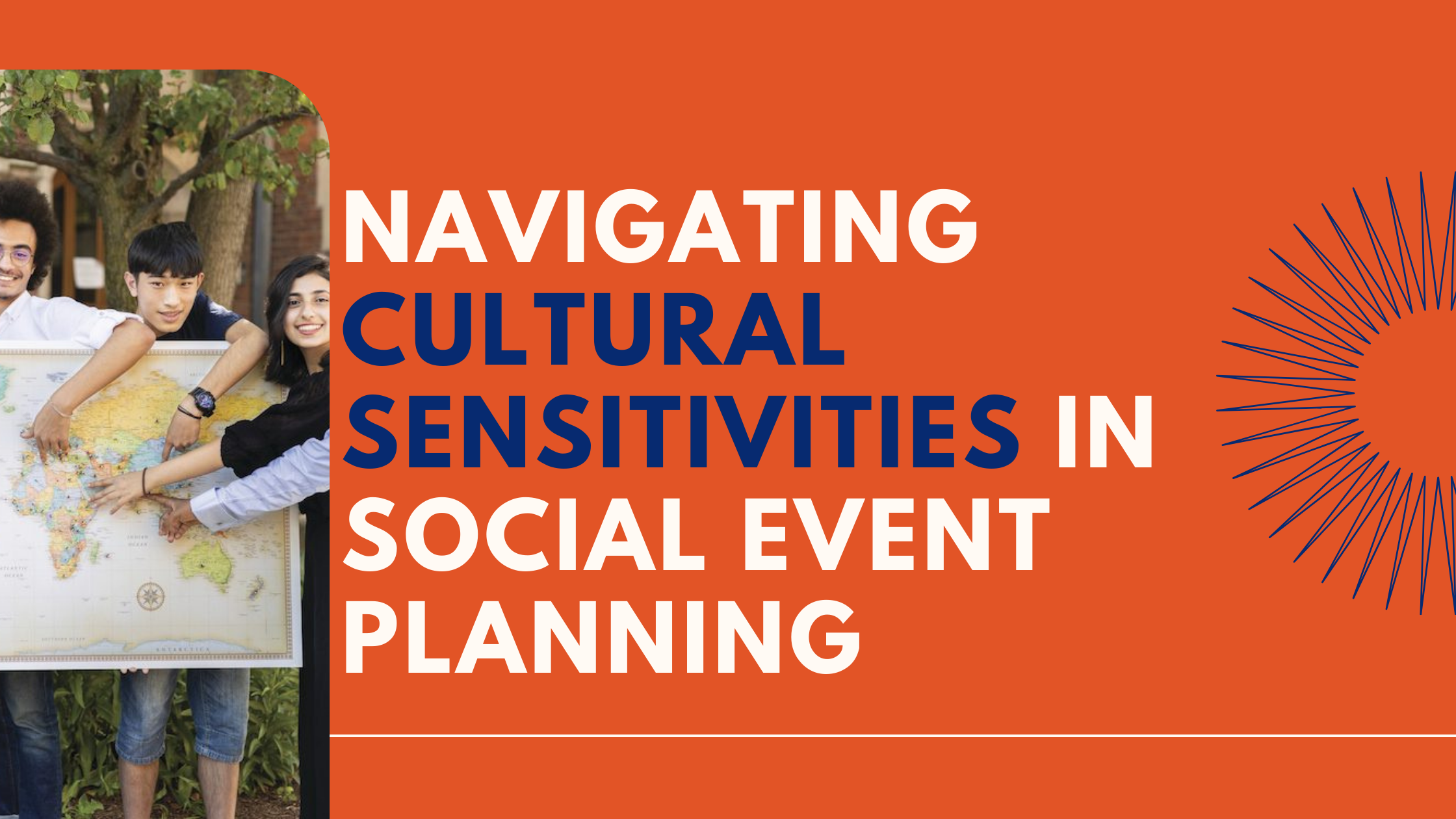
Published in:
Corporate Seminars
Navigating Cultural Sensitivities in Social & Corporate Event Planning – Maze Events’ View
“In today’s globalized world, cultural sensitivity is paramount in event management”
As event planners, at Maze Events and Experiences, we have the privilege—and the challenge—of pulling together events that unite people from around the world. When it comes to planning an international event, we must be able to navigate the complex web of cultural distinctions.
We must arm ourselves with knowledge, sensitivity, and a healthy dose of flexibility when planning an event, as trying to please all can be a daunting task. In this blog, we are going to share with you some of our top tips on how to navigate your way through these cultural differences.
1. Cultural Sensitivities: The Research
Values and Beliefs:
Discover the core values and beliefs that define your audience’s cultural identity. What are their priorities in life? What is their attitude toward family, community, and work? Understanding this will allow you to deliver significant insights into your attendees’ attitude.
Traditions and Rituals:
Each culture has its own set of traditions and rituals that influence daily life. Familiarize yourself with religious ceremonies and social norms to ensure that your event meets the expectations and sensitivities of your target audience. For example, secure private prayer rooms.
Social Etiquette:
Etiquette varies greatly between cultures; certain cultures have distinct means of greeting; in Ireland, a firm handshake is accepted, whilst in Japan, a bow is acceptable. You should also consider personal space, gestures, and communication styles. For example, in certain cultures, direct eye contact is a show of respect, yet in others, it is considered confrontational.
Sensitive Topics:
Every culture has delicate issues that should be handled with attention and care. Be wary of off-limits or sensitive topics, whether they be religious, political, or societal in nature. Avoiding these traps will allow you to keep a courteous and inclusive environment.
2. Cultural Sensitivities: The Flexibility
Cultural Rituals and customs:
Many cultures have their own rituals and customs that you can add into your event, such as traditional dance performances, religious ceremonies, or traditional toasts. When including these cultural practices into your event calendar, specific considerations must typically be taken. Being flexible and adaptable allows attendees to fully participate in and appreciate these rituals.
Time Perception:
Cultural ideas toward timing differ substantially around the world. While some cultures value timeliness and closely stick to schedules, others take a more casual attitude to timekeeping. Being able to accommodate both demands allows you to be accommodating while also preventing any confrontations or misunderstandings.
Cultural attitudes regarding hierarchy and decision-making can have an impact on event planning. In certain cultures, decisions are made jointly with input from numerous stakeholders, whereas in others, they are centralized and hierarchical. You must be flexible in your decision-making processes in order to traverse these cultural variations and ensure that all opinions are heard and appreciated.
3. Cultural Sensitivities: The Clear Communication
Employing multilingual staff or volunteers can help you communicate with attendees who do not speak the event’s major language. These individuals can help with translation, interpretation, and guiding non-native speakers. This is great for ensuring that everyone feels involved and understood.
Visual Communication Aids:
Use visual communication tools such as signage, maps, and infographics to support spoken information and improve understanding among attendees. Visual aids are very useful for communicating vital information including event timetables, venue layouts, and emergency protocols.
Cultural Sensitivity Training:
Provide cultural sensitivity training to your employees and volunteers. They will then be completely prepared to interact respectfully and effectively with a varied audience. This training should address cultural conventions, customs, and communication styles.
Hosting interactive workshops or conversations invites participants to share their cultural viewpoints and experiences. These seminars can facilitate cross-cultural interchange and learning, fostering mutual understanding and appreciation among all participants.
4. Cultural Sensitivities: The Dietary Preferences
Religious Dietary regulations:
Many religions have dietary regulations that specify what foods are permissible and prohibited. For example, in Islam, people observe halal dietary requirements and do not consume pork. They stipulate that specific meats be slain according to Islamic beliefs. Similarly, in Judaism, dietary requirements known as kosher dictate which items are permissible to consume, with severe rules for meat, dairy, and food preparation.
Allergies and food sensitivities:
Allergies and food sensitivities are not just a health problem, but also a critical one for any event planner. Inquire about participants’ allergies and dietary requirements, including common allergens like nuts, gluten, and dairy, to ensure that all meal choices are safe and inclusive.
Ethnic & Regional Cuisine:
Use this occasion to highlight the many culinary traditions of your participants’ cultures. Incorporate authentic meals from various locations to bring a distinct and flavorful touch to your event, allowing attendees to celebrate their ancestry and share their culinary customs with one another.
5. Cultural Sensitivities: The Dress Code
Provide clear guidelines:
Provide clear guidelines: Establish explicit dress code standards for your event well in advance. Include specific descriptions or samples of suitable clothes to ensure that participants understand what is expected of them.
Acknowledge Cultural Sensitivity:
Acknowledge Cultural Sensitivity: Consider cultural sensitivities when establishing clothing regulations. For example, in some cultures, some forms of clothing may be deemed immodest or rude. Take them into consideration and modify the dress code accordingly.
Offer alternatives:
Some guests may not have access to or feel comfortable wearing specific types of attire. Offer different solutions that still adhere to the dress code while allowing others to put their own perspective on it. Instead of requiring a strict Western dress code, you may recommend traditional wear from the attendees’ cultures as an alternative.
Conclusion
So, hope you have the essential tips for when it comes to social and corporate event planning. As you can see cultural sensitivity and adaptability are indispensable qualities.
If you would like the Maze Events team to help with your next social and corporate events.
SHARE ON



